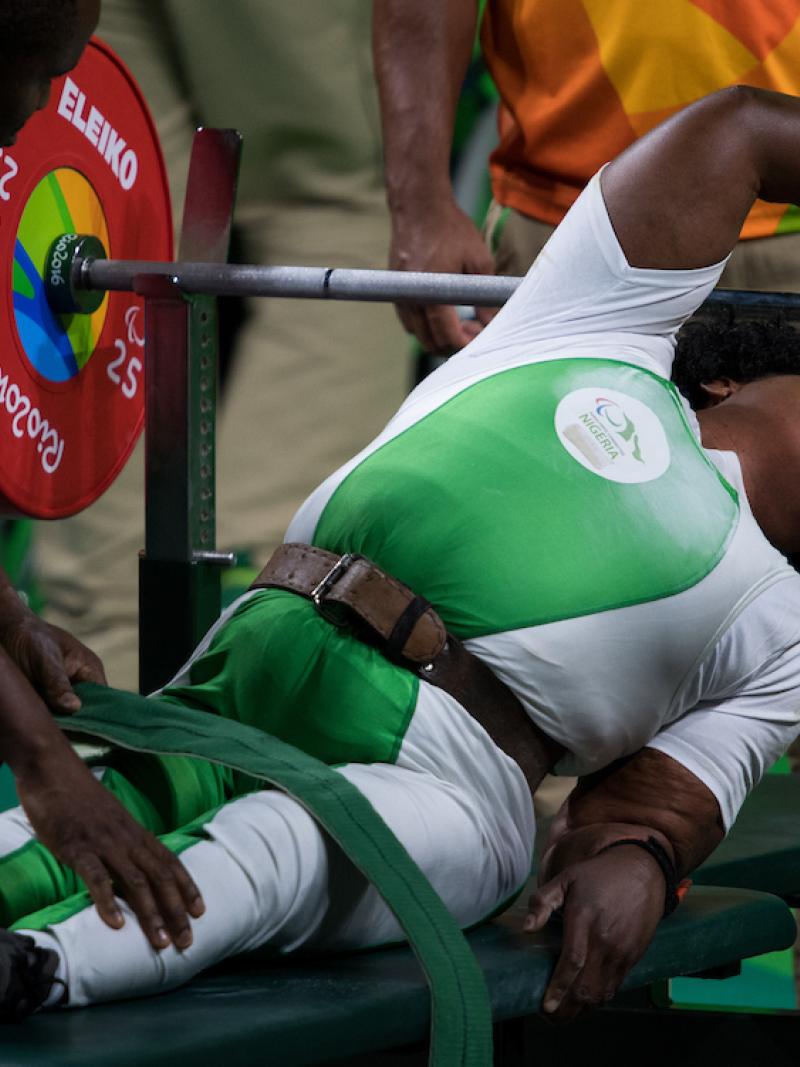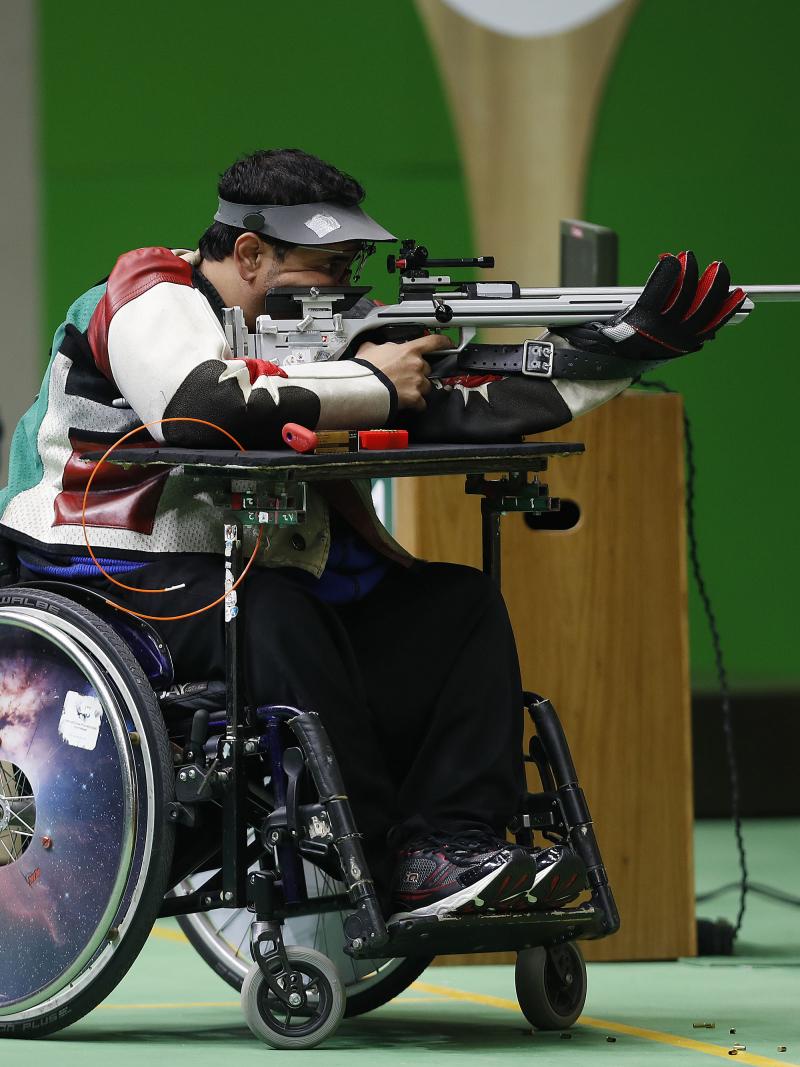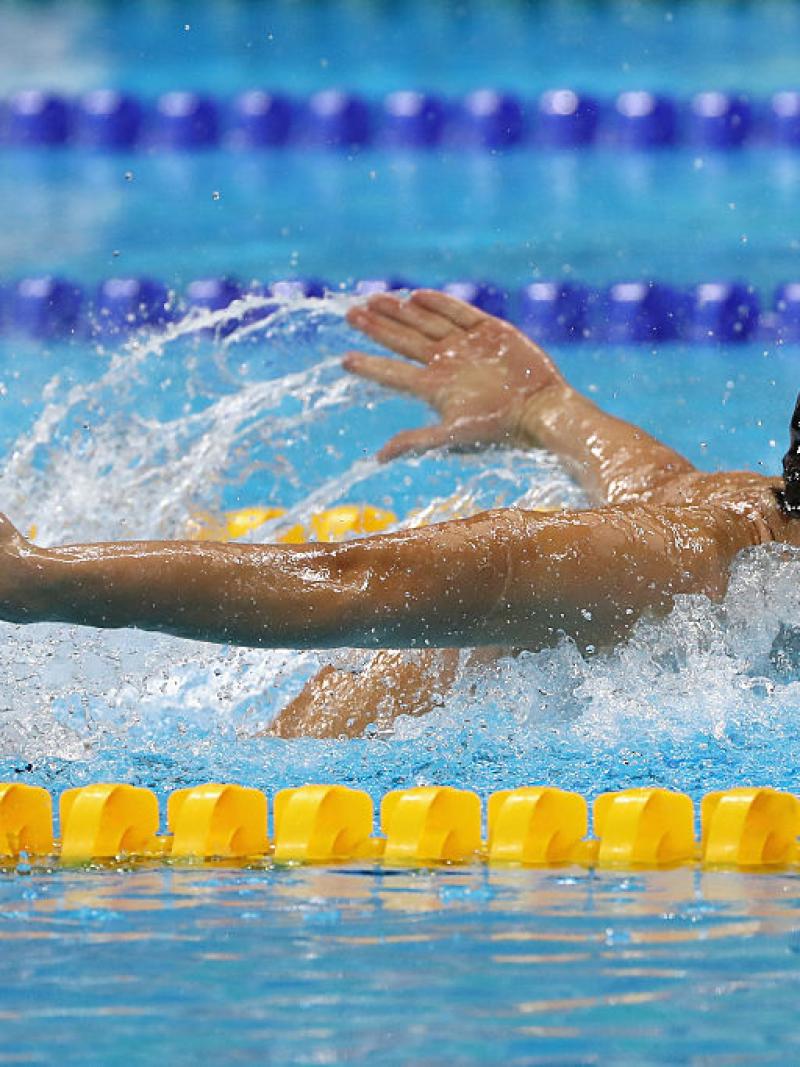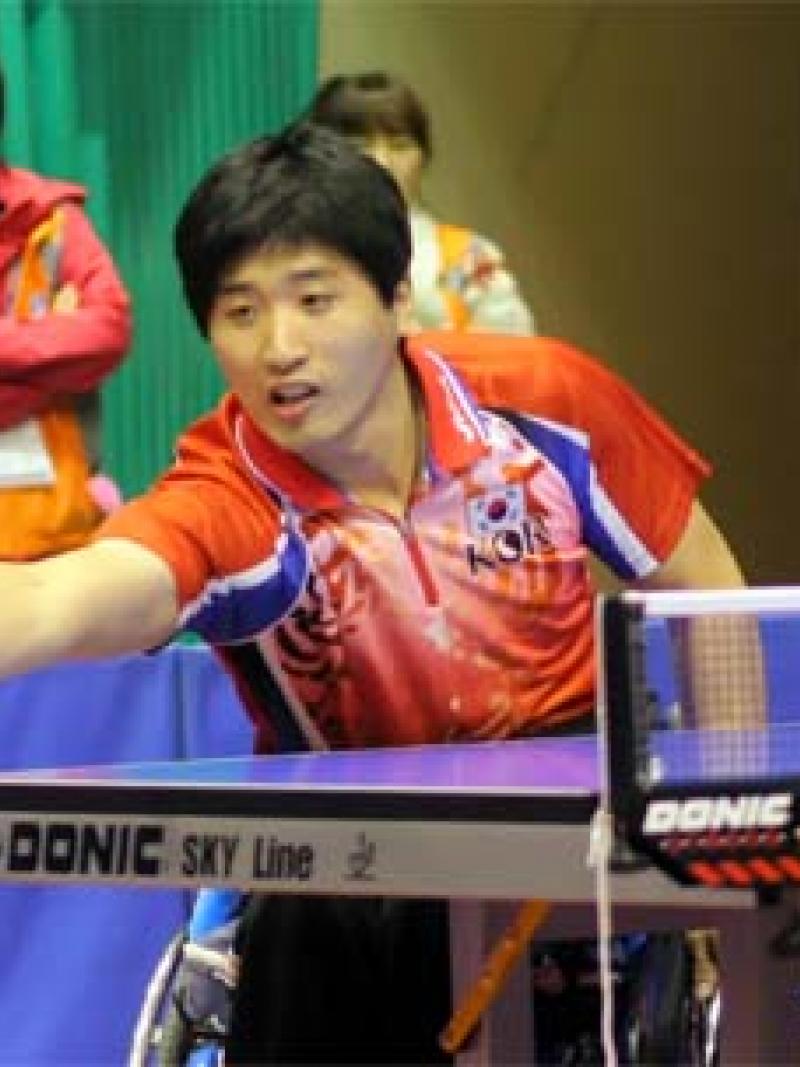Seven athletes from Oceania at Rio 2016
Australia, Fiji, Papua New Guinea, New Zealand, Samoa and Tonga were the continent’s six countries competing at last month’s Paralympic Games. 17 Oct 2016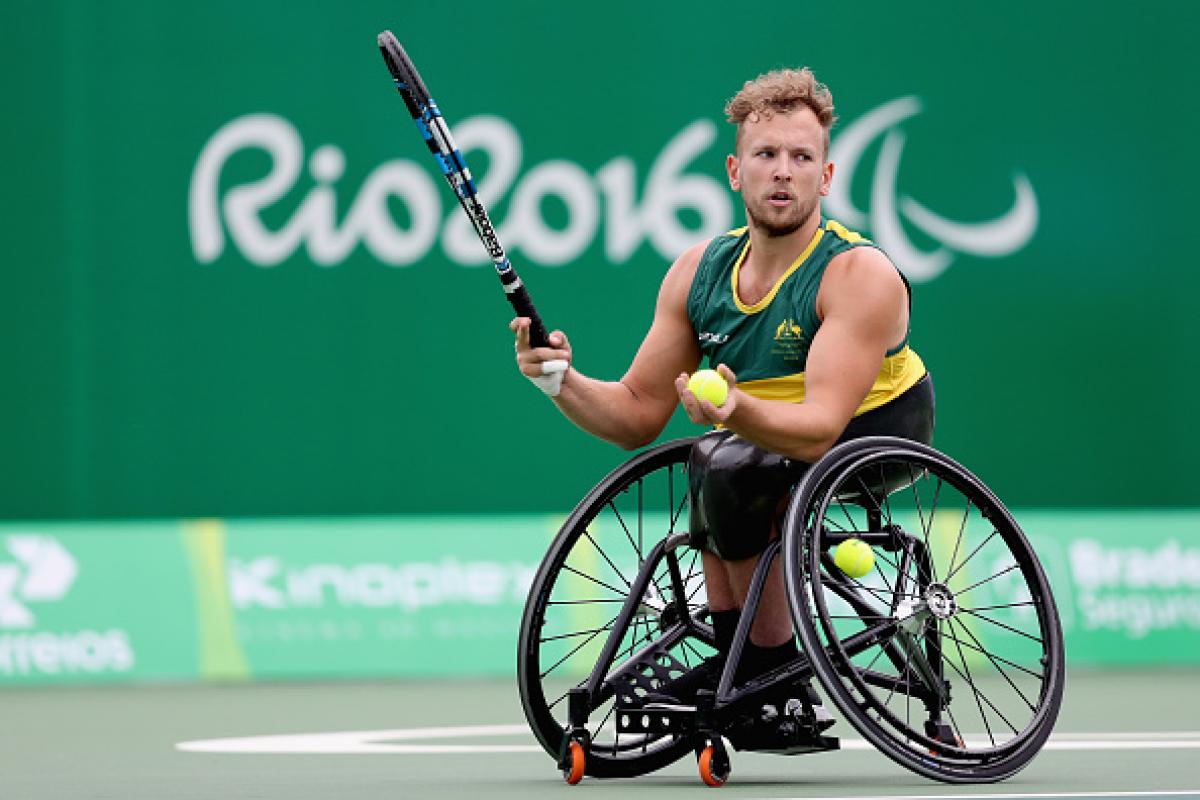
Dylan Alcott of Australia plays Andy Lapthorne in men's quad singles at the Rio 2016 Paralympic Games
With Australia finishing fifth in the medals table with 22 golds, 30 silvers and 29 bronzes, and New Zealand rounding off their best Paralympic Games ever, check out seven athletes from Oceania who stood out at Rio 2016.
Besides the aforementioned countries, Fiji, Papua New Guinea, Samoa and Tonga were the continent’s other four taking part in last month’s Games.
Curtis McGrath (AUS)
The growing sporting rivalry in canoe between the 28-year-old and Austria’s multi-world champion Markus Swoboda reached a new level at Rio 2016 with a thrilling men’s KL2 final held in the stunning Rodrigo de Freitas Lagoon. McGrath took gold with a time of 42.190, followed by Swoboda (43.726). Great Britain’s Nick Beighton (44.936) completed the podium. “Markus is such a strong rival, the sport would not be the same without him. But I am happy to have won and hope me being on the spotlight can get more people involved with Paralympic sports,” said McGrath after the race.
Daniel Fitzgibbon, Liesl Tesch (AUS)
Australia proved to be sailing’s most dominant force in Rio, taking silver in the one-sail 2.4 Norlin OD and gold in both the three-sail Sonar and the two-sail SKUD18. It was in the latter that Daniel Fitzgibbon and Liesl Tesch showed overwhelming superiority, winning eight of the 11 races and finishing second in the rest to claim their second successive Paralympic gold.
Liam Malone (NZL)
New Zealand’s fastest Paralympian had a Games to remember, winning medals in all three sprint events. Malone ended second in the 100m T43/44 behind Great Britain’s Jonnie Peacock but showed even better form for the 200m and 400m T43/44, claiming two golds, both in a Paralympic record time.
Dylan Alcott (AUS)
After winning gold at Beijing 2008 and silver at London 2012 in wheelchair basketball, the 25-year-old decided to switch to wheelchair tennis. World No.1 Alcott could not have made a better decision as he sealed a double Paralympic title in Rio. The 25-year-old claimed the quad doubles gold, with Heath Davidson, and went on to defeat Great Britain’s Andy Lapthorne 6-3, 6-4 in the quad singles final, rounding off a perfect Paralympic Games for him.
Sophie Pascoe (NZL)
Before the Rio Games, Pascoe had already won six golds and four silvers over two Paralympics. And she did not slow down in Rio, adding three golds and two silvers to her medal haul to become New Zealand’s most successful Paralympian of all time. The 23-year-old broke the world record on her way to gold in the women’s 200m individual medley SM10 and also won the 100m butterfly S10 and the 100m backstroke S10. Pascoe, however, could not defeat Canada’s Aurelie Rivard, her biggest rival, in both the 50m and 100m freestyle S10, taking double-silver.
Ryley Batt (AUS)
The 27-year-old was in unstoppable form as he led the Australian wheelchair rugby team to its second consecutive Paralympic title. Batt, arguably the world’s best player, scored 158 points throughout the competition, including 27 in the gold-medal match against the USA.
Carol Cooke (AUS)
The road cycling T1-2 class was dominated by the 55-year-old, who won both races. On 14 September, Cooke (26:11.40) took gold in the women’s time trial ahead of USA’s Jill Walsh (26:49.67) and followed that up two days later with another gold in the road race with a time of 1:07.51.

 Facebook
Facebook
 Instagram
Instagram
 Twitter
Twitter
 Youtube
Youtube
 TikTok
TikTok
 Newsletter Subscribe
Newsletter Subscribe

